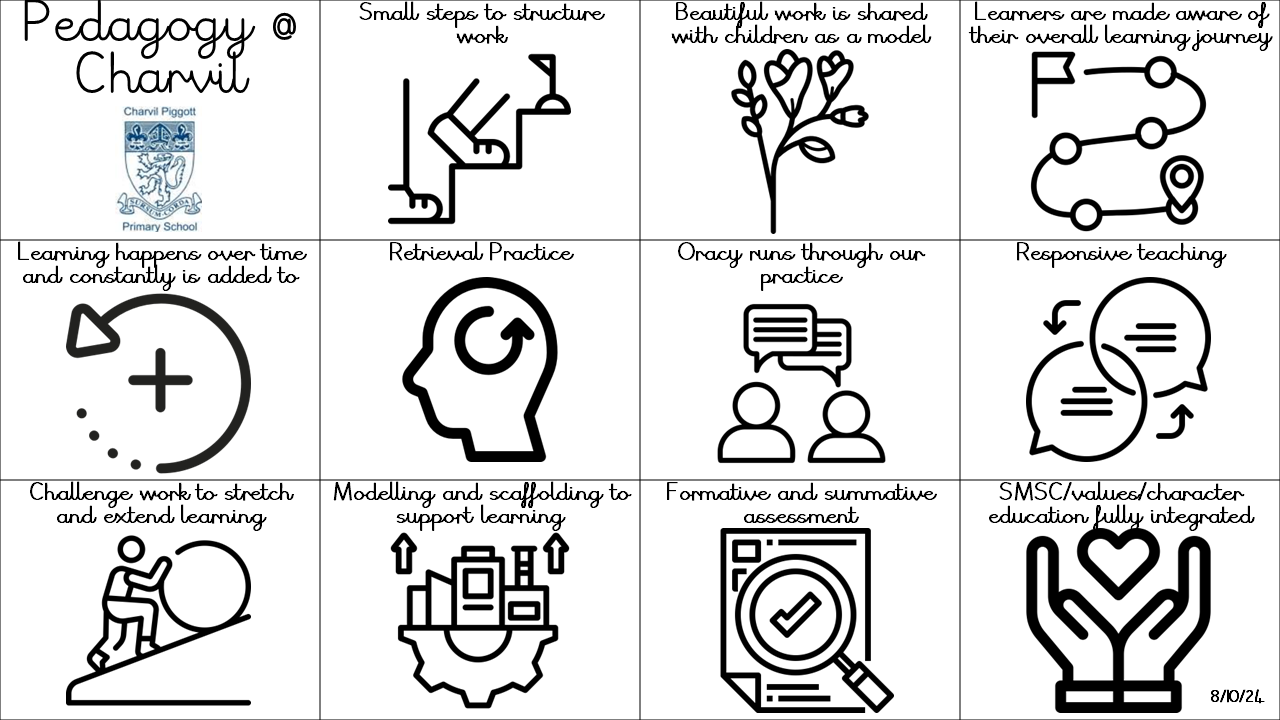Curriculum
Curriculum Intent at The Piggott School: Charvil Primary
Our curriculum offer provides a caring environment based on our Christian Vision and Values. Children are encouraged to help each other and receive help when they need it, as exemplified by our school’s Christian Vision to
‘Go and do Likewise’ Luke 10:37, The Parable of The Good Samaritan.
Our school aims are:
- To provide a caring environment based on our Christian Vision and Values
- To develop enquiring minds capable of independent thought
- To promote the value of lifelong learning
- To be open to new ideas
- To encourage respect and tolerance
You can read more about the aims, implementation and impact of our curriculum here.
If you wish to learn more about your child’s learning, please see our yearly overviews below which provide a summary of your child’s learning.

